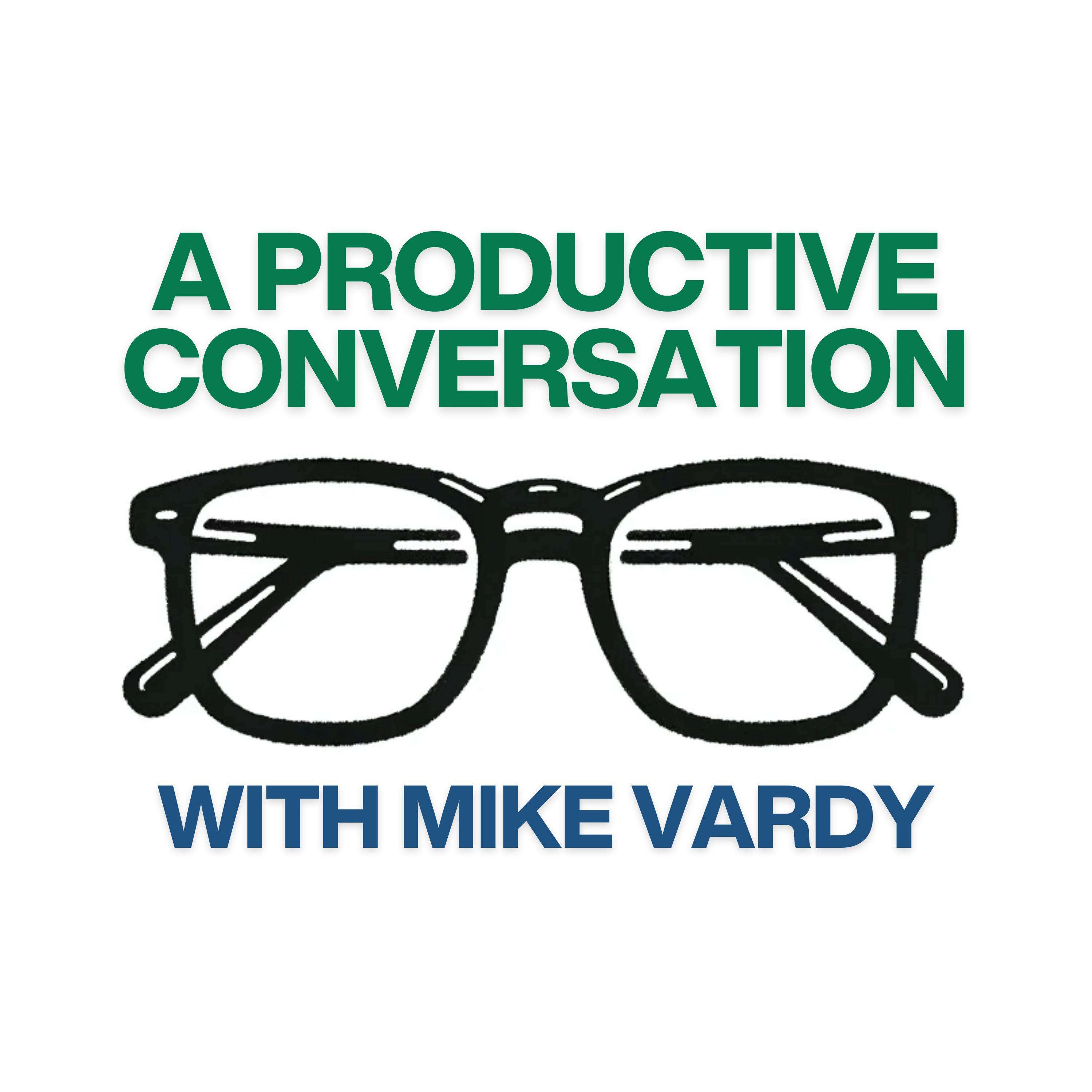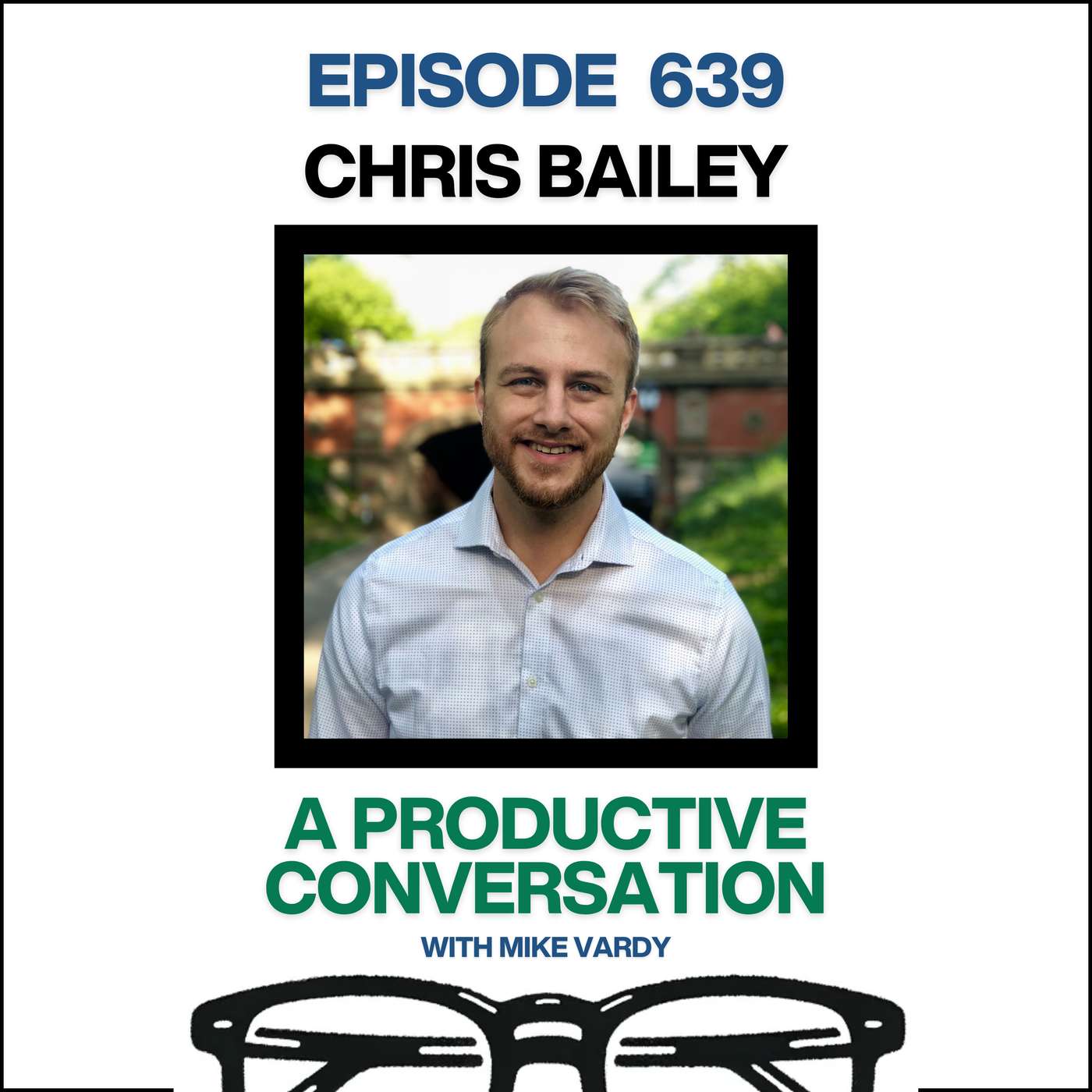A Productive Conversation

A Productive Conversation
Podcast Description
Hosted by productivity strategist Mike Vardy, A Productive Conversation offers insightful discussions on how to craft a life that aligns with your intentions. Each episode dives into the art of time devotion, productiveness, and refining your approach to daily living. Mike invites guests who are thinkers, doers, and creators to share their strategies for working smarter and living more intentionally. From practical tips to deep dives on mindset shifts, this podcast will help you reframe your relationship with time and find balance in a busy world.
Subscribe and join the conversation—because a productive life is more than just getting things done.
Podcast Insights
Content Themes
The podcast covers a variety of themes including personal productivity, creativity, the intersection of technology and work, emotional resilience, minimalism, and intentional living. Episodes feature discussions like Austin Kleon on routines and creativity, Krish Ramineni on AI and focus, and Anne-Laure Le Cunff on sustainable productivity through small experiments, all aimed at reframing the listeners' relationships with their time and priorities.

Hosted by productivity strategist Mike Vardy, A Productive Conversation offers insightful discussions on how to craft a life that aligns with your intentions. Each episode dives into the art of time devotion, productiveness, and refining your approach to daily living. Mike invites guests who are thinkers, doers, and creators to share their strategies for working smarter and living more intentionally. From practical tips to deep dives on mindset shifts, this podcast will help you reframe your relationship with time and find balance in a busy world.
Subscribe and join the conversation—because a productive life is more than just getting things done.
In this episode of A Productive Conversation, I sit down once again with author and researcher Chris Bailey to explore what it really means to live—and work—intentionally. This conversation centers on his latest book, Intentional: How to Finish What You Start, and the decade of curiosity that led him there.
We dig into why goals often fail us, how culture shapes our relationship with productivity, and why values—not habits, hacks, or willpower—sit at the core of meaningful progress. This isn’t a surface-level productivity chat. It’s a thoughtful examination of why we do what we do, and how to align our days with who we actually are.
Six Discussion Points
- Why values—not goals—are the true drivers of intentional action
- The “intention stack” and how daily actions connect to lifelong direction
- Why SMART goals aren’t as smart as we’ve been led to believe
- Cultural differences in how productivity and calm are valued
- Night owls, morning routines, and the danger of “sepia-toned” goals
- The role of reflection in escaping default behavior and finishing what matters
Three Connection Points
- Buy the book
- Check out Chris’s website
- Listen to Chris’s first appearance the podcast (from October 2014!)
This episode is a reminder that productivity isn’t about doing more—it’s about doing what fits. If you’ve ever felt friction between your goals and your values, or wondered why “good habits” still leave you unsatisfied, this conversation will give you plenty to reflect on—and return to.

Disclaimer
This podcast’s information is provided for general reference and was obtained from publicly accessible sources. The Podcast Collaborative neither produces nor verifies the content, accuracy, or suitability of this podcast. Views and opinions belong solely to the podcast creators and guests.
For a complete disclaimer, please see our Full Disclaimer on the archive page. The Podcast Collaborative bears no responsibility for the podcast’s themes, language, or overall content. Listener discretion is advised. Read our Terms of Use and Privacy Policy for more details.